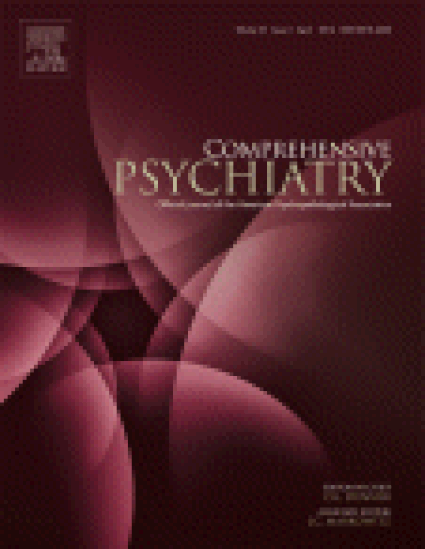
Article
Trauma exposure, posttraumatic stress disorder and risk for alcohol, nicotine, and marijuana dependence in Israel
Comprehensive Psychiatry
(2014)
Abstract
Background: Substance dependence is more common among trauma-exposed individuals; however, most studies suggest that Posttraumatic Stress Disorder (PTSD) accounts for the link between trauma exposure (TE) and substance dependence.
Objectives: This study examined associations between TE and substance dependence (alcohol, nicotine, and marijuana), and whether PTSD accounted for this association.
Method: 1317 Jewish Israeli household residents completed in-person structured interviews assessing TE, PTSD, and substance (alcohol, nicotine, marijuana) dependence between 2007 and 2009. Regression analyses examined associations among TE, PTSD, and substance dependence.
Results: In the full sample, mean number of traumatic events was 2.7 (sd=2.2), with 83.7% experiencing at least one event. In the full sample, mean number of PTSD symptoms was 2.5 (sd=3.4), with 13.5% meeting PTSD diagnostic criteria. Prevalence of alcohol dependence was 13.4%; nicotine dependence 52.8%; and marijuana dependence 12.1%. Number of traumatic events was associated with increased odds of alcohol (OR=1.3; 95% CI=1.2-1.4) and nicotine (OR=1.2; 95% CI=1.1-1.3) dependence. Similarly, any traumatic event exposure was associated with increased odds of alcohol (OR=3.1; 95% CI=1.6-6.0) and nicotine (OR=1.9; 95% CI=1.2-2.9) dependence. PTSD symptoms were associated with increased odds of alcohol (OR=1.2; 95% CI=1.1-1.3), nicotine (OR=1.1; 95% CI=1.1-1.2), and marijuana (OR=1.1; 95% CI=1.04-1.2) dependence; similarly, a PTSD diagnosis was associated with increased odds of alcohol (OR=3.4; 95% CI=2.1-5.5), nicotine (OR=2.2; 95% CI=1.4-3.4), and marijuana (OR=2.6; 95% CI=1.2-5.9) dependence. PTSD symptoms accounted for a sizeable proportion of the TE effect on alcohol (46%) and nicotine dependence (31%).
Conclusion: Individuals with more traumatic events had heightened risk for alcohol and nicotine dependence, and PTSD symptoms partially accounted for this risk. However, marijuana dependence was only significantly related to PTSD symptoms. Clinicians and researchers should separately assess different types of dependence among trauma-exposed individuals both with and without PTSD symptoms.
Disciplines
Publication Date
April, 2014
DOI
10.1016/j.comppsych.2013.11.016
Citation Information
Kate Walsh, Jennifer C Elliott, Dvora Shmulewitz, Efrat Aharonovich, et al.. "Trauma exposure, posttraumatic stress disorder and risk for alcohol, nicotine, and marijuana dependence in Israel" Comprehensive Psychiatry Vol. 55 Iss. 3 (2014) p. 621 - 630 Available at: http://works.bepress.com/jennifer-elliott/32/
